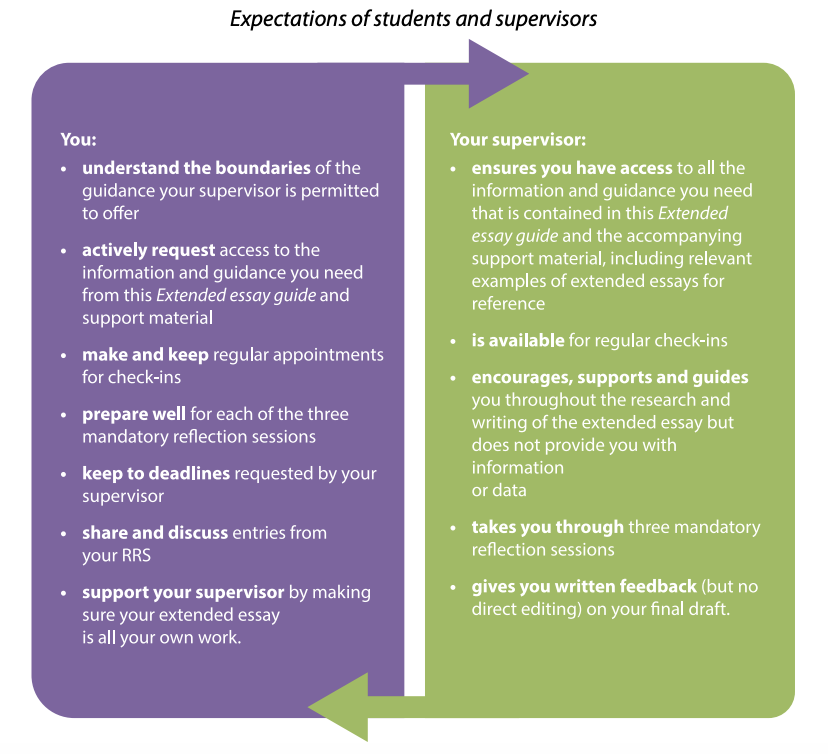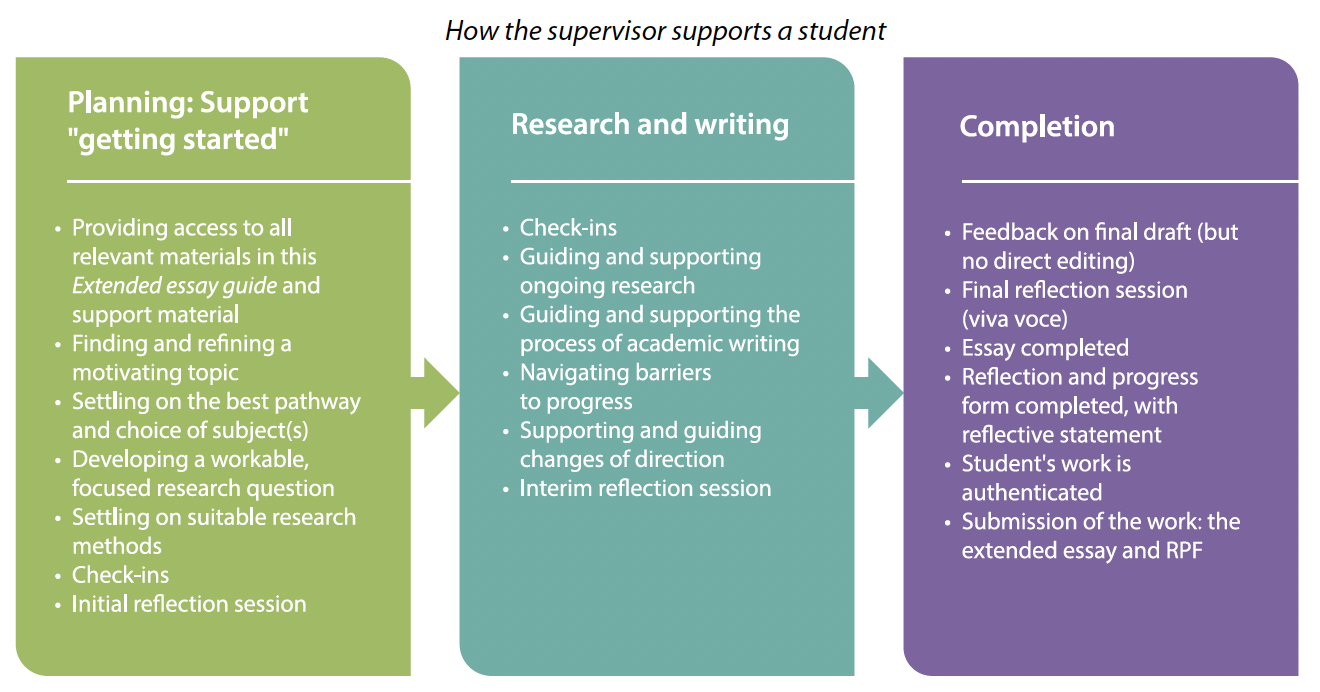

The Extended Essay is mainly a product of your own independent work, but you are supported by your supervisor. The supervisor–student relationship is central to the success of the Extended Essay. Whether built on a pre-existing connection or developed a new, it should be active, supportive, and collaborative, with the supervisor guiding the student through planning, research, writing, reflection sessions, and submission to ensure the essay reflects the student’s best efforts.

EE Guide pg 83

Commenting on Your Draft
The supervisor is only permitted to comment in writing on the full draft of your extended essay once. You must do your own proofreading, carefully checking your extended essay draft to edit spelling and grammar, check formatting, and ensure you have not exceeded the 4,000-word limit.
The recommended approach is for the student to submit the draft ahead of a supervision session. This allows the supervisor to provide comments, which are then discussed in a one-on-one meeting. This discussion should focus on how the essay can be improved, but the supervisor should avoid extensive annotations or editing.
Authenticating Your Essay
All Extended Essays must be authenticated by both the student and supervisor before submission to the IB eCoursework system. Supervisors must...
EE Guide pg 104-108
Working effectively with your supervisor is key to a successful EE. Here are some tips based on the IB guidance:
Be Prepared for Meetings
Take Ownership of Your Work
Use the Mandatory Meetings Wisely
You'll have six meetings total:
Communicate Openly
Respect the Boundaries
Document Your Progress
The supervisor-student relationship works best when you're engaged, prepared, and taking responsibility for your own learning journey!